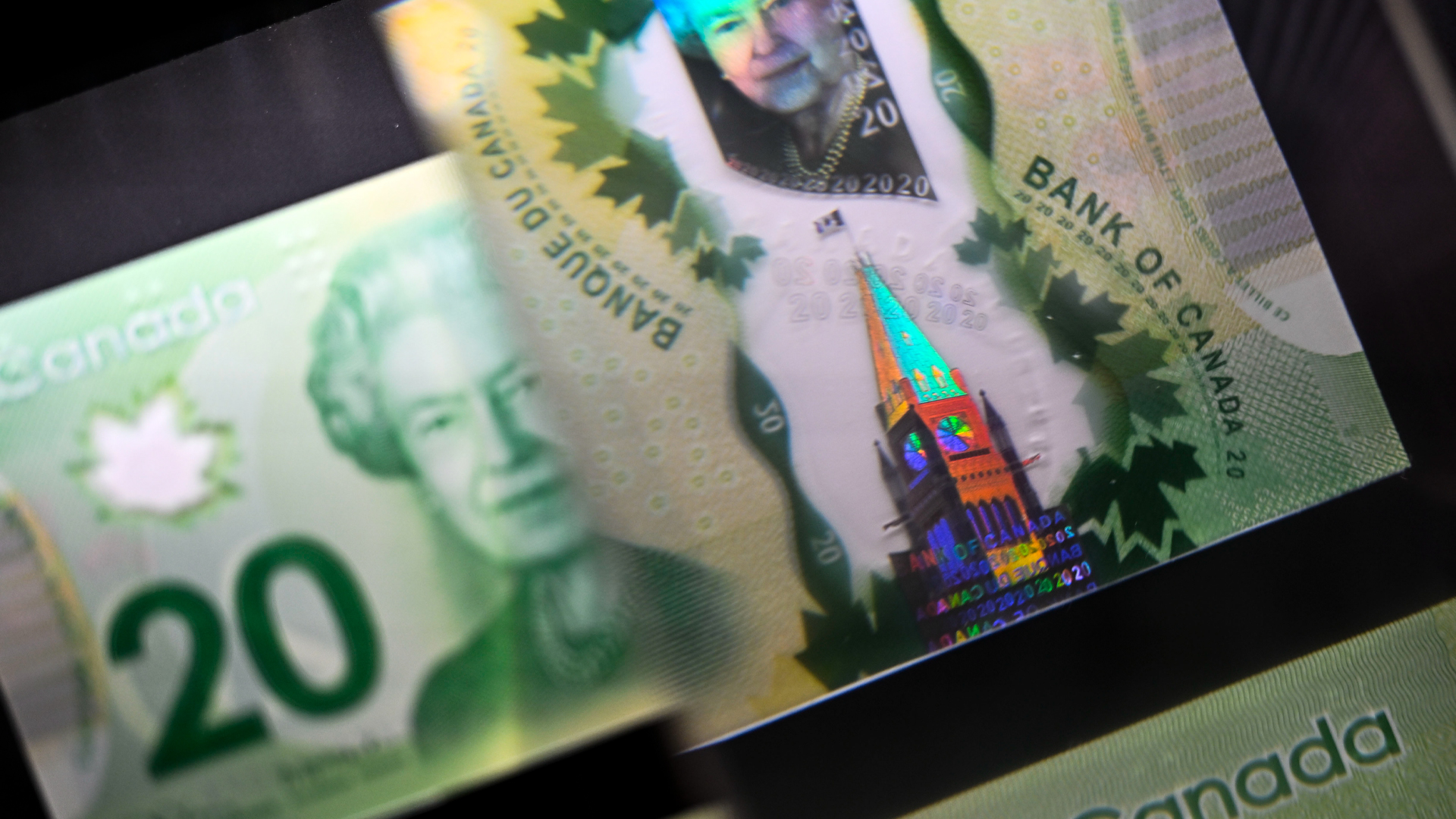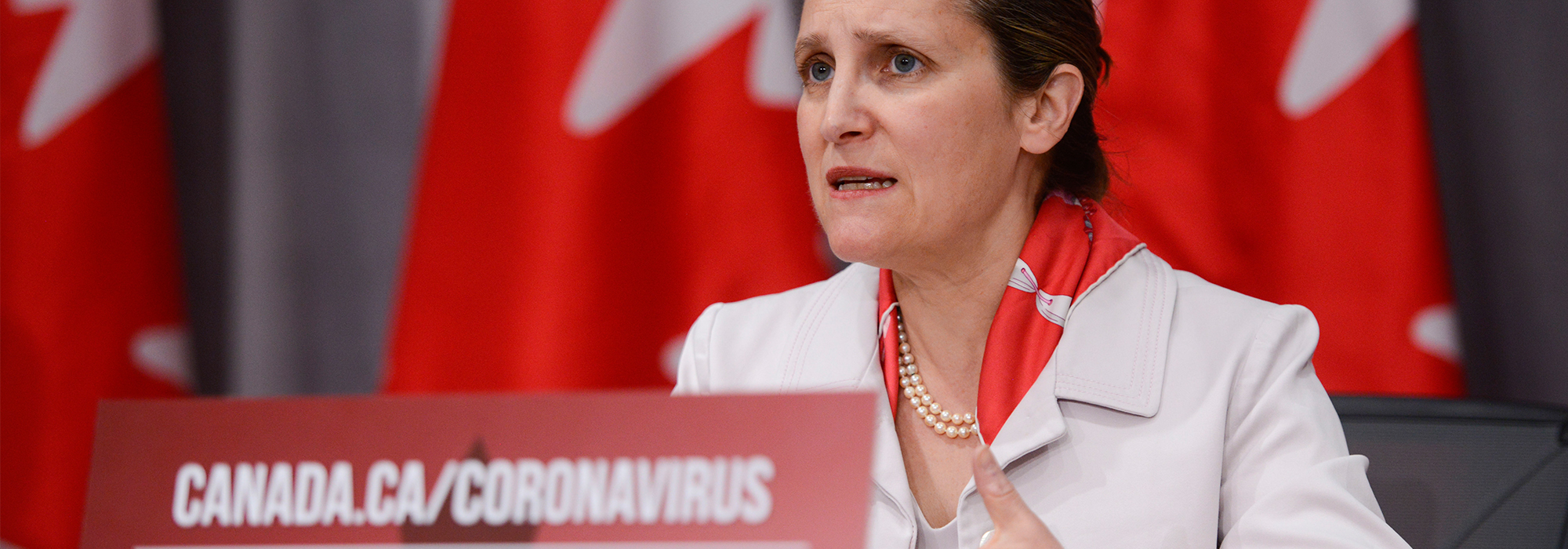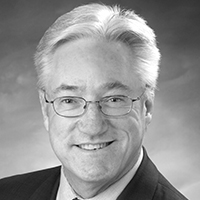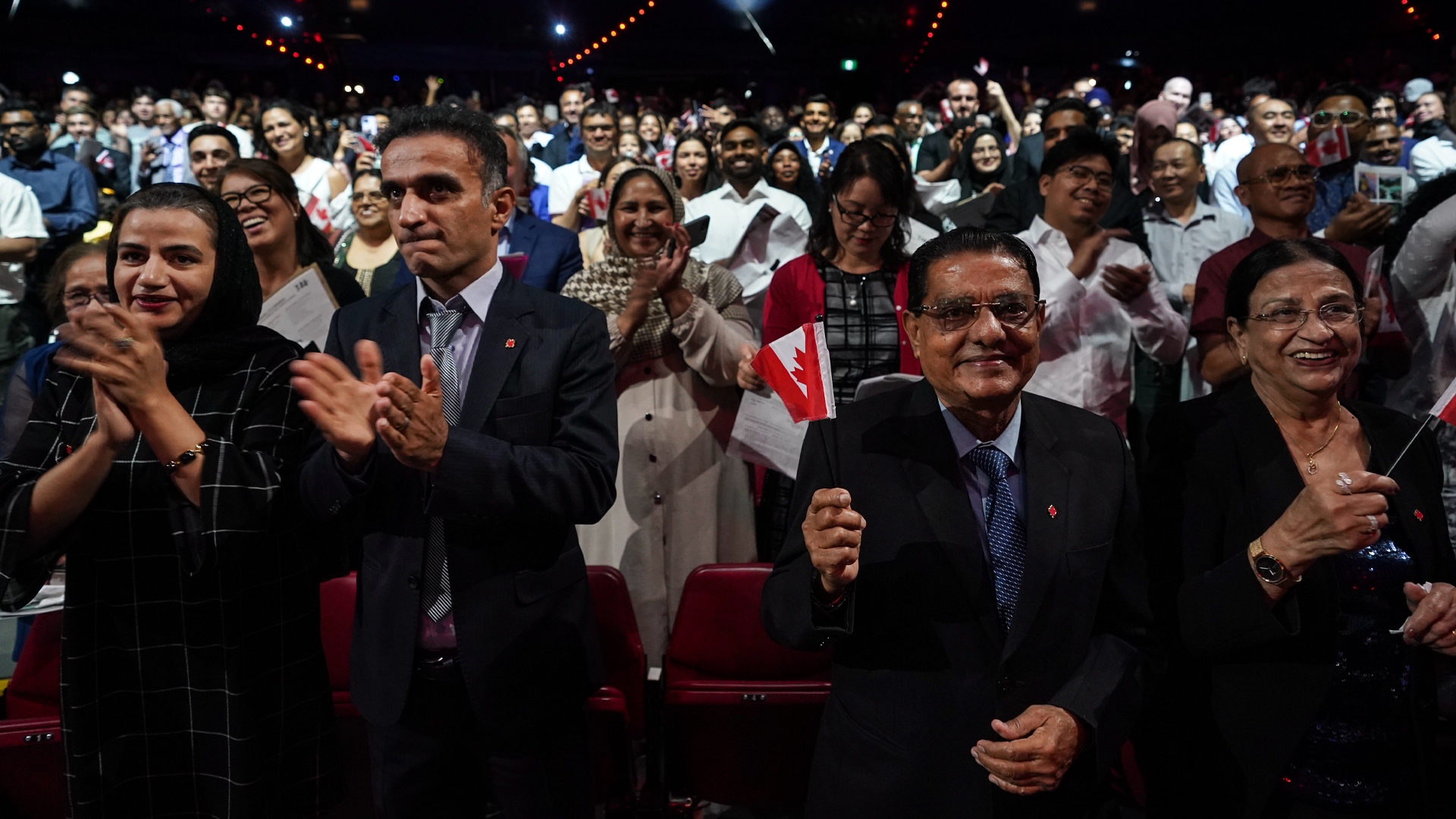
Prime Minister Trudeau should step aside and let Deputy Prime Minister Chrystia Freeland take over until the ethics commissioner decides on the conflict of interest allegation in the WE controversy. Freeland is the second most powerful person in Ottawa and is basically running the government anyway. The deputy prime minister has a mandate to intervene in the portfolios of most of the ministers in the Trudeau government and has responsibilities for many of the government’s major files.
Arguments and claims like these abound these days. They should be greeted with skepticism as they do not accord with how cabinet government works in Ottawa.
The deputy prime minister: From titular to powerful
There have been a total of 10 deputy prime ministers, beginning with Allan MacEachen more than 40 years ago. The role is usually considered honorific, often bestowed upon a long-serving politician. Over the years the influence of the office has waxed and waned.
It is widely believed that Don Mazankowski was the most influential and powerful deputy PM in Canadian history. This was owing to several factors unique to Mazankowski, notably his personal relationship with the prime minister, his longevity in Parliament, the fact he had no leadership aspirations and the respect he commanded within the Progressive Conservative caucus.
At the other end of the power spectrum were people like Sheila Copps, Erik Nielsen and Herb Gray. John Manley and Anne McLellan, deputies to prime ministers Jean Chrétien and Paul Martin respectively, landed somewhere in the middle.
So where does the current deputy PM fit in that firmament? What are the indicators and limits of power for anyone in this role? Is Freeland really running things in Ottawa?
Mandates: Real versus perceived
Freeland’s six-page mandate letter has led some to believe she has licence to intervene in every major ministerial portfolio and file of the government. In fact, that letter states explicitly that the deputy PM is to “work with” ministers in advancing the government’s agenda in various domains. Therein lies the key to understanding the role of the deputy PM today and historically.
The office has no basis in statute, controls no government programs and has no intervening authority in the roles and mandates of other ministers. In dealings with other ministers, the deputy PM is subject to the parameters of the ministry in play as set out in relevant legislation, which is vested in the minister. The power of the office is circumscribed further because there is neither a mandated department nor a deputy minister exclusively assigned. The deputy PM is supported by the Privy Council Office, whose chief responsibility is to the PM.
The deputy PM’s power, then, largely comes down to one of persuasion and the ability to work collegially with and command respect from cabinet colleagues — and the extent to which she is believed by her colleagues to be representing the PM’s views, a role which must be exercised judiciously. In contrast to the prime minister, the deputy PM does not have the power to bend ministers to her will with the threat of shuffling them out of their portfolios or out of cabinet altogether.
Much is also made of the fact that Freeland chairs two of the government’s nine cabinet committees: the Cabinet Committee on Economy and the Environment and the ad hoc Cabinet Committee on the Federal Response to the Coronavirus Disease. While these are important positions, there is little independent power associated with chairing cabinet committees.
In theory, the chair sets the agenda of the committee. In practice, this is determined by the PM, his office and the Privy Council Office, in consultation with the chair. The chair must also faithfully sum up the collective decision of the cabinet committee. There isn’t much discretion for the chair to put a thumb on the scale without losing the confidence of cabinet colleagues.
During the pandemic, Trudeau ceded some high-profile communications work to Freeland, notably daily public briefings in which she chaired a group of ministers whose portfolios are on the front lines of Ottawa’s pandemic response. This public role, too, has led to claims that she is really driving the government bus.
Profile does not equal power. The legal and program authorities, and political accountabilities for them, remain with the portfolio ministers (Health, Treasury Board, Public Procurement, Finance, Social Development and so on), not the deputy PM.
In responding to the pandemic, a conflict of interest has arisen involving the prime minister and the WE charity. Some, including the leader of the Bloc Québécois, have suggested that the PM should step aside temporarily and let Freeland assume his role for the duration of the ethics investigation. This idea is preposterous. The prime minister does not have the authority to transfer his job to anyone even temporarily.
There is no provision in the Canadian Constitution for a “number two position” stepping into the PM’s role. Canada is not akin to a presidential system, with a vice-president enshrined in the constitution as the successor upon resignation, impeachment or death of the president. The elected PM is the PM for the life of the government, unless he or she resigns or dies in office, at which point an interim leader is selected by the government caucus, subject to endorsement by the governor general.
The deputy PM can be an important position in the cabinet. But the office is limited to “soft power,” not hard legal or program authority. The deputy PM is not even the second most powerful person in the government of Canada. That distinction always resides with the finance minister and derives from the legal and policy mandates for government spending, taxation and the economy assigned to that portfolio.
At this juncture of her tenure, within the pantheon of deputy prime ministers, Freeland seems to have a role similar to Anne McLellan and John Manley. Influential, yes. Politically important, to be sure, but not to be overstated. In charge of the government, never.
Photo: Deputy Prime Minister Chrystia Freeland in May, 2020, at a press conference on Parliament Hill. THE CANADIAN PRESS/Sean Kilpatrick








